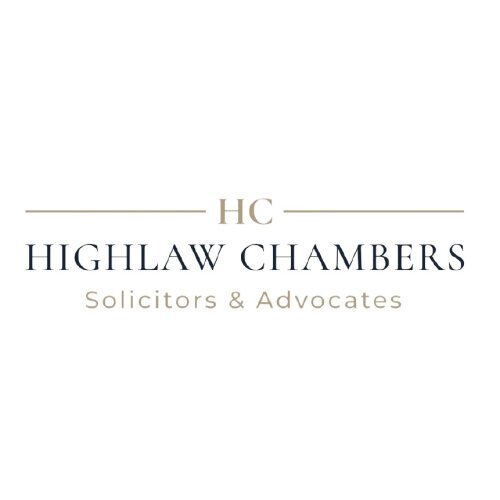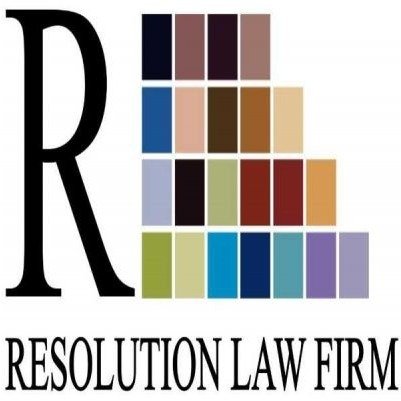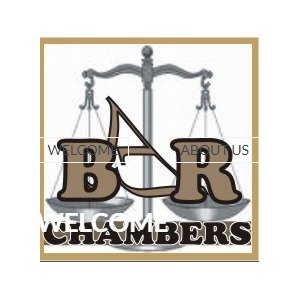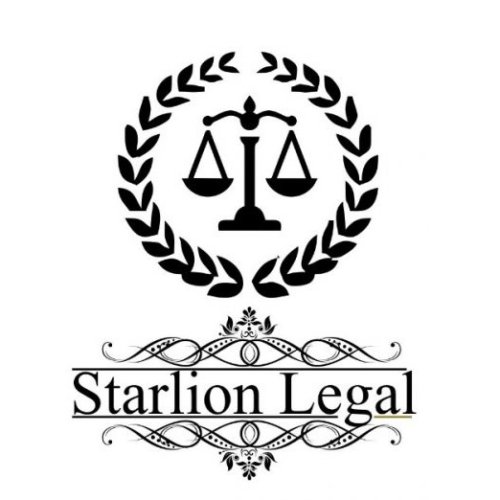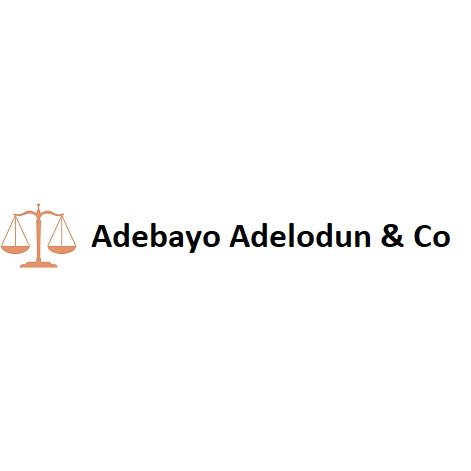Best Bankruptcy Lawyers in Abuja
Share your needs with us, get contacted by law firms.
Free. Takes 2 min.
List of the best lawyers in Abuja, Nigeria
About Bankruptcy Law in Abuja, Nigeria
Bankruptcy Law in Abuja, Nigeria falls under the insolvency jurisdiction, designed to protect companies or individuals from the inability to meet their financial obligations. Under the Nigerian Bankruptcy Act (C7) 2004 and the Companies and Allied Matters Act (2004), these laws provide the legal procedures to declare insolvency or bankruptcy, either by voluntary petition or through court proceedings.
Why You May Need a Lawyer
In navigating bankruptcy, you may require the services of a lawyer due to the complexity of the process. Common situations where a lawyer's expertise is invaluable includes when you are unable to pay your business debts, when a creditor claims you’re bankrupt, or when initiating voluntary bankruptcy proceedings. In addition, lawyers provide advice on the best course of action and can negotiate with creditors on your behalf.
Local Laws Overview
The bankruptcy laws in Abuja are subject to the federal laws of Nigeria. Bankruptcy declaration can either be voluntary (where the debtor instigates proceedings) or involuntary (initiated by the creditors). Moreover, individuals can only declare bankruptcy after meeting certain conditions such as a minimum amount of debt with failed payment after demand, and possessing no contractual agreement on debt repayment with creditors.
Frequently Asked Questions:
1. What happens when I declare bankruptcy?
When you declare bankruptcy, the court places an automatic stay on your debts which stops most creditors from collecting their debts. Your assets will also be evaluated and non-exempt properties will be sold to repay your debts.
2. How long does it take to declare bankruptcy?
The duration of bankruptcy proceedings varies depending on the complexity of the case. This could range from a few months to several years.
3. What is the difference between insolvency and bankruptcy?
Insolvency is a financial state of being unable to pay debts whilst bankruptcy is a legal process that occurs when a person or business cannot repay their outstanding debts.
4. Can I start a new business after being declared bankrupt?
Yes, bankruptcy does not prevent you from starting a new business. However, access to credit could be more challenging due to a lower credit score.
5. Can all debts be erased in bankruptcy?
Not all debts can be erased during bankruptcy in Nigeria. Some of the debts that cannot be erased include spousal support, child support, some tax debts, and any debt you incurred due to fraudulent activities.
Additional Resources
For more assistance, the following sources may provide valuable insights:
- Nigeria Corporate Law Services
- Nigerian Bar Association
- Nigeria Insolvency Office- Federal Ministry of Justice
- The Companies and Allied Matters Act
Next Steps
If you need legal assistance with bankruptcy, consider reaching out to a lawyer specializing in bankruptcy or insolvency law. They can guide you through the process and help to manage the legal and financial complexities. You may also contact the Nigerian Bar Association for referrals to suitable legal assistance.
Lawzana helps you find the best lawyers and law firms in Abuja through a curated and pre-screened list of qualified legal professionals. Our platform offers rankings and detailed profiles of attorneys and law firms, allowing you to compare based on practice areas, including Bankruptcy, experience, and client feedback.
Each profile includes a description of the firm's areas of practice, client reviews, team members and partners, year of establishment, spoken languages, office locations, contact information, social media presence, and any published articles or resources. Most firms on our platform speak English and are experienced in both local and international legal matters.
Get a quote from top-rated law firms in Abuja, Nigeria — quickly, securely, and without unnecessary hassle.
Disclaimer:
The information provided on this page is for general informational purposes only and does not constitute legal advice. While we strive to ensure the accuracy and relevance of the content, legal information may change over time, and interpretations of the law can vary. You should always consult with a qualified legal professional for advice specific to your situation.
We disclaim all liability for actions taken or not taken based on the content of this page. If you believe any information is incorrect or outdated, please contact us, and we will review and update it where appropriate.




